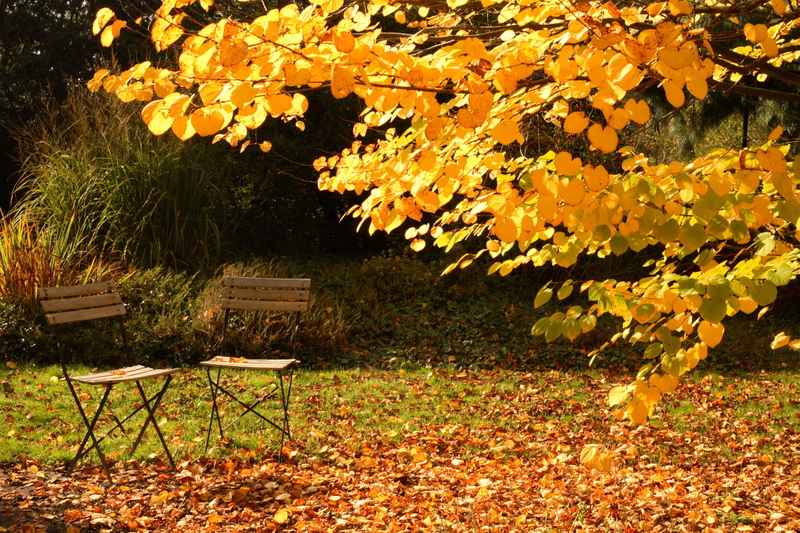Revitalizing Landscapes with Organic Waste Transformation
Posted on 22/06/2025
Revitalizing Landscapes with Organic Waste Transformation
Organic waste transformation is revolutionizing the way we manage landscapes. By diverting biodegradable material from landfills and turning it into valuable resources, we can restore soil fertility, create vibrant ecosystems, and establish sustainable land management practices that benefit communities and the environment alike.
Understanding Organic Waste Transformation
Organic waste transformation refers to the process of converting agricultural residues, food scraps, yard trimmings, manure, and other biodegradable materials into usable products such as compost, mulch, biochar, or renewable energy. Rather than letting these resources go to waste in landfills, transformation techniques harness their potential to nurture landscapes and contribute to a circular economy.
Types of Organic Waste Suitable for Landscape Revitalization
- Food scraps and kitchen waste
- Grass clippings and garden waste
- Tree leaves and branches
- Agricultural residues (e.g., crop stubble)
- Livestock manure
Why Revitalize Landscapes using Organic Waste?
The transformation of organic waste offers a holistic approach to landscape management. Here's why integrating organic waste transformation in landscape revitalization projects matters:
- Reduces landfill waste and methane emissions.
- Enhances soil structure and fertility for lush, healthy vegetation.
- Improves water retention and erosion control.
- Boosts biodiversity and ecosystem resilience.
- Supports climate action by sequestering carbon and reducing pollution.

Organic Waste Transformation Methods for Landscape Restoration
Multiple organic waste conversion techniques can be used to revitalize landscapes. Each method offers unique environmental, social, and economic advantages. Here are the most popular approaches:
1. Composting
Composting is the microbial decomposition of organic matter into a nutrient-rich soil amendment. This process can occur in backyard piles, community sites, or large-scale facilities.
- Benefits: Supplies soil with essential nutrients, improves texture, fosters beneficial microbes, suppresses plant diseases, and reduces reliance on synthetic fertilizers.
- Composting process: Aerobic (requires oxygen), includes turning the pile, maintaining proper moisture, and a carbon-to-nitrogen mix (greens and browns).
2. Vermicomposting
Vermicomposting utilizes special worms (often red wigglers) to digest organic waste, resulting in castings that are even more enriched and biologically active than traditional compost.
- Advantages: Produces highly available nutrients for plants, is suitable for small spaces, and is ideal for community gardens, schools, or urban landscapes.
3. Anaerobic Digestion
Through anaerobic digestion, microbes break down organic materials without oxygen, generating biogas for energy and digestate for soil improvement.
- Environmental benefits: Captures methane for use as fuel, reduces odors, and provides a closed-loop solution for managing large-scale organic waste from municipalities or farms.
4. Biochar Production
Biochar is a stable, carbon-rich charcoal produced by pyrolyzing organic biomass in low-oxygen conditions. When applied to soils, biochar improves structure, increases water retention, and can remain stable for centuries.
- Landscape impact: Enhances fertility, mitigates soil acidification, sequesters carbon, and is beneficial for reforestation or degraded land recovery projects.
5. Mulching
Shredded organic matter can be directly used as mulch on landscape surfaces to protect soil, retain moisture, suppress weeds, and provide slow-release nutrients as it decomposes.
- Usage tips: Apply a 2-3 inch layer around trees, shrubs, and garden beds; avoid piling against trunks or stems.
Benefits of Revitalizing Landscapes with Organic Waste Conversion
The organic waste to resource movement has the power to transform degraded, tired, and unproductive lands into vibrant, resilient green spaces. Here are some of the transformative benefits:
Soil Health and Fertility
- Restores essential nutrients and organic matter, balancing soil chemistry.
- Improves microbial activity, promoting disease resistance and plant vigor.
- Corrects soil structure, enhancing root growth and aeration.
Water Conservation and Erosion Control
- Boosts soil water-holding capacity, reducing irrigation needs.
- Decreases runoff & soil erosion by stabilizing the landscape during rain events.
Climate Change Mitigation
- Reduces landfill methane emissions, a potent greenhouse gas.
- Sequesters carbon in soil, especially via compost and biochar application.
Biodiversity Enhancement
- Supports pollinators and beneficial organisms by creating diverse habitats.
- Encourages native plant growth and ecosystem recovery.
Cost-Effective and Sustainable Solutions
- Reduces dependence on chemical fertilizers and pesticides.
- Utilizes locally available resources, decreasing transport emissions.
- Engages communities in circular economy practices.
Real-World Applications and Success Stories
1. Urban Green Spaces and City Parks
Many cities have embraced rejuvenating public parks with compost and mulch produced from collected yard and food waste. For instance, San Francisco processes curbside organic waste into high-quality compost used in city landscaping, leading to healthier trees, decreased stormwater runoff, and revitalized lawns.
2. Agricultural Land Restoration
Regenerative agriculture relies heavily on the recycling of crop residues and animal manures. By consistently incorporating organic amendments, degraded fields have shown measurable improvements in yield, soil depth, and biodiversity within just a few seasons.
3. Brownfield and Mine Reclamation
The application of compost and biochar has proven effective in jumpstarting plant establishment and mitigating toxins in degraded, contaminated sites--turning barren land into productive, vegetated landscapes.
4. Home Gardens and Community Projects
At the household and community level, transforming kitchen and yard waste into compost or mulch supports healthy gardens, beautifies neighborhoods, and encourages environmental stewardship from the ground up.
Overcoming Challenges in Organic Waste Transformation
Revitalizing landscapes with organic waste transformation is not without its hurdles. Challenges include:
- Lack of public awareness or participation
- Collection, separation, and contamination issues
- Cost and logistics of large-scale processing
- Limited access to suitable technologies in some regions
- Regulatory barriers regarding waste management and product application
Strategies for Improvement
- Education and outreach to inform the public and decision-makers of benefits
- Incentives and policy support for source separation, composting, and sustainable procurement
- Partnerships among municipalities, businesses, and communities
- Innovation in collection and transformation technology, making processes efficient and scalable
Best Practices for Implementing Organic Waste-Based Landscape Revitalization
If you're planning to transform landscapes using organic waste resources, follow these best practices to maximize success:
1. Source Separation and Collection
- Set up clear separation of organic from inorganic waste at the source.
- Use bins, compostable liners, and signage for easy identification.
2. Choose the Right Transformation Technology
- Match the processing method to the scale, waste type, and intended end use.
- Larger amounts may require centralized facilities, while smaller projects can use on-site composting or worm bins.
3. Quality Control
- Monitor temperature, moisture, and inputs during composting to ensure pathogen destruction and maximize nutrient value.
- Screen finished products to avoid contamination with plastics or unwanted debris.
4. Correct Application
- Apply compost or mulch according to plant needs and soil tests.
- Don't overapply, as too much organic matter can cause imbalances or runoff problems.
5. Monitor Outcomes and Adapt
- Track growth, soil health, and ecosystem changes after application.
- Be ready to adjust practices based on results for continuous improvement.

Organic Waste Transformation: The Future of Sustainable Landscapes
The push for climate resilience, food security, and healthier communities requires new approaches to land management. Revitalizing landscapes through organic waste utilization is at the heart of this transition, uniting science, policy, and community action.
As more municipalities, farmers, and organizations embrace organic waste resource recovery, the results speak for themselves: cleaner cities, more productive soils, restored habitats, and a reduction in environmental footprints.
How You Can Join the Movement
- Start composting at home and educate neighbors.
- Support or initiate community composting projects.
- Choose locally produced compost for gardens and landscaping.
- Advocate for municipal curbside organic waste collection programs.
- Encourage schools and businesses to separate and recycle organics.
Conclusion: Creating a Greener Tomorrow
Revitalizing landscapes with organic waste transformation is a practical, proven path toward ecological balance, food security, and climate resilience. By turning what was once considered waste into valuable resources, we invest in our planet's future and ensure that generations to come enjoy rich, vibrant, and sustainable landscapes.
It starts with a single step: rethinking organic waste as a resource, and taking action in our homes, neighborhoods, and communities. Let's transform our landscapes--naturally!
Latest Posts
Protecting Your Plants from Strong Wind Forces
Transformative Zen Garden Concepts for Your Peaceful Outdoor Sanctuary
Economical Garden Hacks: 5 Low Maintenance Ideas to Try

